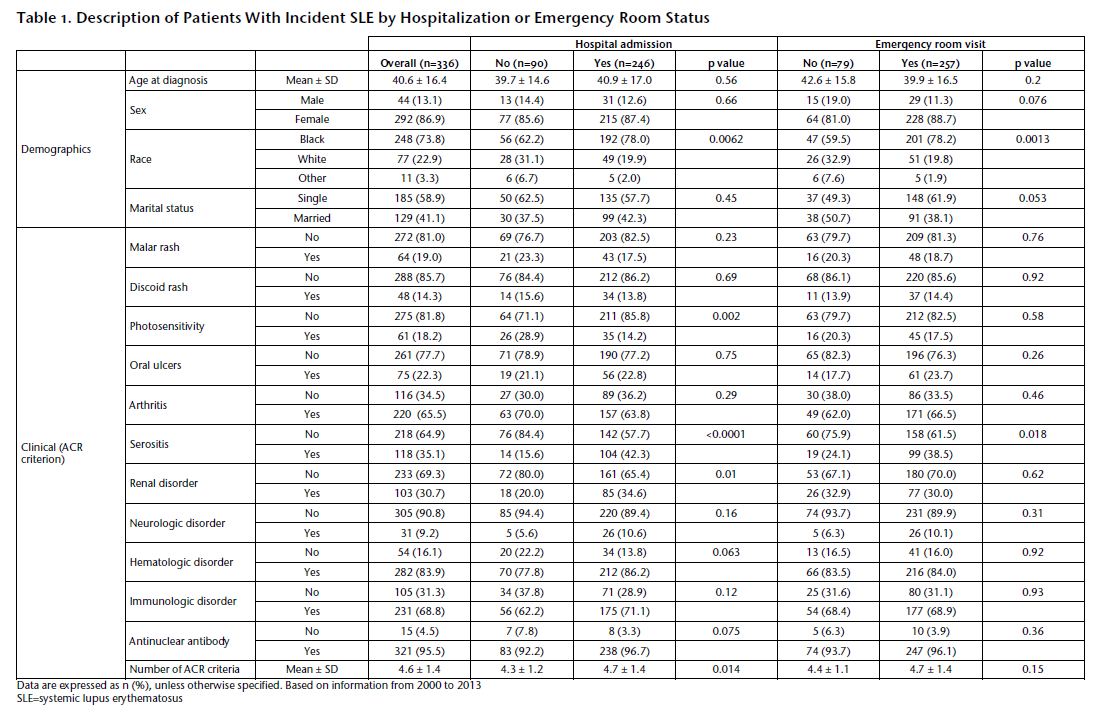Session Information
Session Type: ACR Poster Session A
Session Time: 9:00AM-11:00AM
Conclusion: SLE has significant healthcare utilization and cost burden. A large proportion of patients are admitted to the ER or hospital. Blacks and those with early renal involvement have a higher rate of hospital and ER admissions. Despite having fewer hospital and ER admissions, whites incurred higher charges per admission than blacks. Further study of factors that drive healthcare utilization and cost is needed.
To cite this abstract in AMA style:
Lim SS, Drenkard C, Bao G, Mukherjee J, Connolly SE, Napoli A, Paul D, Alemao E. Disparities in Utilization and Direct Costs of Hospitalizations and Emergency Room Visits in SLE: The Georgia Lupus Registry [abstract]. Arthritis Rheumatol. 2018; 70 (suppl 9). https://acrabstracts.org/abstract/disparities-in-utilization-and-direct-costs-of-hospitalizations-and-emergency-room-visits-in-sle-the-georgia-lupus-registry/. Accessed .« Back to 2018 ACR/ARHP Annual Meeting
ACR Meeting Abstracts - https://acrabstracts.org/abstract/disparities-in-utilization-and-direct-costs-of-hospitalizations-and-emergency-room-visits-in-sle-the-georgia-lupus-registry/


